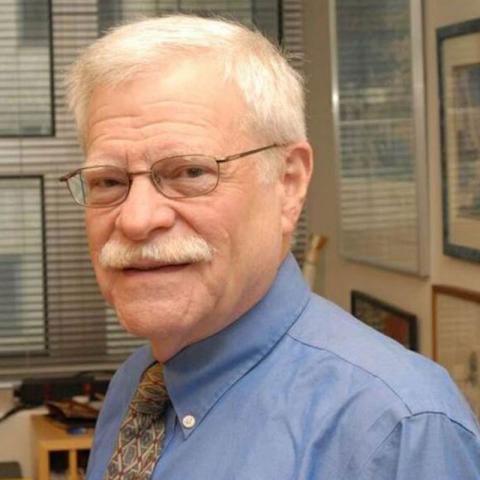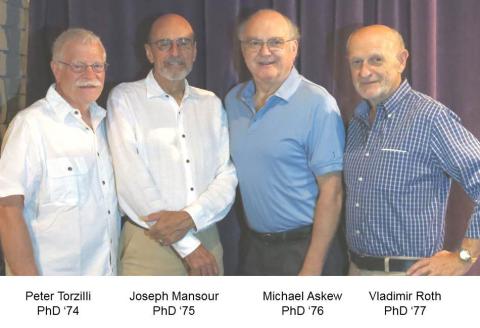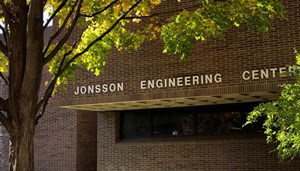
On challenging the convention, lighting the flame, and opening the doors of opportunity…
Tell us a bit about yourself.
In my early years, I moved around quite a bit as a child; born in Brooklyn, New York, moved to Long Island, NY and then back to Brooklyn where I graduated from Lafayette High School in 1963. My high school academics were average, with only mathematics, physics and engineering drafting of interest, so I knew I wanted to be an engineer. The average and tuition costs ruled out most engineering colleges, so I decided to attend Nassau Community College on Long Island, graduating with an Associate of Applied Science degree Engineering Science. This was one of the best choices I have ever made, as the engineering, science and math education at NCC was personal, intensive and thorough. On my very first day in college our English composition teacher told us to “Never believe false prophets or teachers”. Wise advice I still follow in my research, to always question results and not take anything for granted. I transferred to SUNY at Stony Brook, also on Long Island, majoring in engineering science (Stony Brook was only two years old and only had one engineering major at that time). The first thing I did was to ask an engineering graduate student what courses I should take for engineering, and he told me to “always take one math course per semester”. I followed this wise advice all the way through my PhD.
What attracted you to Rensselaer?
It was at Stony Brook that I developed an interest in theoretical and experimental solid mechanics. So when I was looking at engineering graduate schools, a particular program at RPI stuck out, named, quite simply, Mechanics (unique in the U.S.). At that time, 1967, Mechanics was a division in the School of Science, later becoming a department in the School of Engineering (long story). What I especially liked about the Mechanics program was the broad academic blend of courses spanning mechanical and materials engineering, physical sciences, and mathematics.
What was your Rensselaer experience like? What do you think distinguishes Rensselaer?
RPI has an excellent reputation for engineering, in all fields; it’s an engineering school for engineers. So I was delighted when I was accepted into the Mechanics graduate program. Another of the best choices I have ever made. The Mechanics faculty really cared about their students, and they put a significant amount of time in their teaching duties and research efforts. At the graduate level, the professor’s office doors were always open when we needed help, academic and personal, and they even participated in some of our non-academic activities. I was a teaching assistant for two years. It was a really great experience and I liked the interaction with the undergraduate engineers in their courses (statics and dynamics, continuum mechanics, engineering lab). The experience is what made me seek a career as an educator. The current curriculum in engineering and the physical sciences has advanced considerably from my time, and I am always amazed at the opportunities for the RPI undergraduates to experience real life learning problems, in the lab and outside. The education I received as a graduate student, in courses and research work, provided me with the technical skills, confidence, and vision to succeed in my later career as an academic teacher and scientific researcher. One of the best experiences of my time at RPI was the fellow students I met. Many become close friends and future colleagues. We all worked hard and struggled with our courses and research projects, but always found time to enjoy outside activities together. When help was needed it was always available. This made life at RPI much more enjoyable.

Tell us a about your journey as a researcher and about your research.
After one semester at RPI, the chairman of Mechanics, Dr. Fred Ling, offered me a research assistantship to work in the new field of biomechanics. I was researching the fracture mechanics of bone as a new PhD graduate student, and three years later changed advisors to Dr. Van Mow to work on the biomechanics of articular cartilage. After graduating in 1974, I spend two years as a post-doctoral fellow in the Biomechanics Laboratory of Dr. Albert Burstein in the School of Engineering at Case Western Reserve University in Cleveland, Ohio. The lab moved to Hospital for Special Surgery-Weill Cornell Medical College in New York City in 1976, where I had a faculty position for over 40 years. My research has focused on the biomechanics and mechanobiology of musculoskeletal tissues and joints, such as articular cartilage and osteoarthritis, and injury to the knee. The research teams included a multi-disciplinary team of engineers, biologists, biochemists, mathematicians, statisticians, radiologists, pathologists, physicians and veterinarians. The research was also performed at multi-scale levels, from the whole joint to the tissue, the cell and even to the atomic structure of molecules. What really attracted me to the field of biomechanics at RPI was that I could apply very basic engineering principles to study the complex mechanisms that govern the function of normal, healthy tissues and joints, and what happens in disease or injured states. In my later research career, I had the opportunity to translate this information to the patient for the healing of injured tissues and joints. Engineers are the “Sherlock Holmes” of bioengineering, trying to solve the mystery of life’s mechanobiological problems. A colleague once said “Biologists explain phenomena, engineers solve problems”. True. What drives me as an engineer is the love of studying biological problems using engineering principals, and in the field of bioengineering the problems are very multifactorial, requiring a very broad view and approach to the solutions. That’s the fun part!
Is there a particular memory from your RPI days that you wish to share?
There are so many good memories it is hard to pick just one. However I would like to relate one instance which is typical of how my RPI professors supported and interacted with their students. When I was at RPI in the late 60’s-early 70’s, there was a cultural and physical revolution going on in the U.S. – the age of hippies, Woodstock and “sex, drugs and rock & roll”, the Viet Nam war, the draft and ROTC on campus, presidential contenders McCarthy, McGovern, Johnson and Nixon, and even an “environmental crisis” to save the planet. RPI went from a conservative “we don’t care” to a liberal “we care” campus in my first year there, helped along in no small part by the more liberal newly arrived graduate students from other institutions. One night during a candle-light “end the war” peace march to the Albany capital building, I was tapped on the shoulder by one of my mechanics professors, the late Dr. Harry F. Tiersten, who asked for a light for his candle and if he could walk together with us graduate students to the capital building. We did and it’s a fond memory of a brilliant and caring RPI mechanics professor. There are many more stories like this which remain in my memory.
What do you do when you are not working or thinking about your research?
What every researcher knows is that their research is a 24/7 occupation, but we all have some side of us that lets us get away from the research. Mine is fly fishing for trout in a river, or just any type of fishing where I practice “catch and release”. It’s the science behind fly fishing that interests us all, that is, the solution to the mystery of where the trout are and what are they eating at that time of day. And, of course, the peace and quiet of the flowing river.
What are your favorite books/movies? Or blogs/podcasts?
My favorite authors are Charles Dickens, Alistair MacLean (The Guns of Navarone et al.), and Winston Churchill (history). I read extensively on the history of WWII, all aspects, all authors, all countries and all locations. I believe that history repeats, and the times and events of WWII had some of the most fascinating, heroic, and diabolical characters of all time. Right now I’m streaming old British TV serials (Acorn). Favorite movies, Casablanca, The Natural, Field of Dreams, Lord of the Rings, The Hobbit, and Star Wars.
You contribute to Rensselaer in many ways, including significantly through personal philanthropy. Why is it important to you?
I believe that most working people do not make their own “positions” in life, but rather someone else opens a “door of opportunity”, and we must decide whether to walk through that door or not. Right or wrong, we make the decision. RPI was my door of opportunity, and I was thankful to be given that choice. Attending RPI in those turbulent years instilled in me, and many of my RPI friends, the belief that people were more important than material gains. Post-graduation, most of us accepted positions resulting in successful leadership careers in academics, research, government and corporations. As such, we now have the opportunity to give back what was offered to us, we can open doors for other individuals. My way of thanking RPI for my opportunity is by giving similar opportunities to RPI students. I was mentored as a student, I have mentored students, and my students have mentored students. And their students will mentor their students. It’s an unwritten law. Eventually it comes a time for us to open doors of opportunity, and there are many ways to do that. Service is one, philanthropy is another. I have served as a chair and a member on many award giving society committees, and I can tell you there is no better feeling than giving an award to someone, even better than getting an award itself. And there is no better feeling then opening a door of opportunity and watching a student step through.
What is your message to current Rensselaer students?
While you may not realize it now, your time at RPI, or any college, is probably one of the best times of your life. It’s a time to absorb all the knowledge possible, and to enjoy the college experience to its fullest. Your college experience should be half academic and half social, taking courses in the classroom for knowledge and technical skills, and outside the classroom to make lifelong friends and communicate about current and future social and political issues that will affect all our lives. And remember two things. “Never believe false prophets or teachers”, so question what you are told to validate and verify what’s true or false. And when the “door of opportunity” is opened for you, you make the decision to walk through or not. Do not let someone else make that decision for you. Right or wrong, you made the decision.
*10-Questions, a feature by Shekhar Garde and Audrey Zurlo, highlights the accomplishments of our students, faculty, and alumni/alumnae on the new School of Engineering website, as well as in Rensselaer print and social media, magazines, and other platforms. We strive to bring out not only the academic and professional accomplishments but also the interesting personal stories of outstanding individuals in the Rensselaer family.
